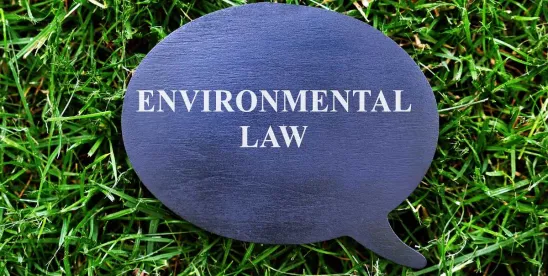On November 5, a federal district court judge in California denied plaintiffs' motion for summary judgment in a facial challenge to California's climate disclosure laws. Although this ruling is relatively limited in scope--it merely held that the First Amendment aspect of the challenge to the climate disclosure laws required a full factual record before issuing a decision, and specifically permitted this legal line of attack to be raised again later--it is nonetheless significant. A court held that climate disclosure laws did not constitute a per se violation of the First Amendment, a ruling that offers support for their continued utility and viability.
Specifically, the California climate disclosure laws at issue--S.B. 253 and S.B. 261--require companies that do business in California and have more than $500 million in annual revenue to disclose “two categories of climate-related financial risk information,” and further require that companies doing business in California and having more than $1 billion in annual revenue to “annually disclose [] Scope 1, Scope 2, and Scope 3 [greenhouse gas] emissions.” These laws were immediately challenged by the U.S. Chamber of Commerce and other business-focused plaintiffs on a variety of grounds. The overall lawsuit challenging these regulations remains pending.
Still, this ruling has taken on even greater significance following the recent U.S. federal election, as the prospects for the ultimate enactment and enforcement of the SEC's climate disclosure rule have decreased substantially with the change in administration. (Notably, even if Vice President Harris had prevailed, the SEC climate disclosure rule was nonetheless facing significant legal headwinds.) Thus, the California climate disclosure laws present perhaps the most likely avenue for mandatory climate disclosures to be a component of general U.S. corporate practice, due to the far-reaching nature of the disclosures--applying to all companies that “do business” in California--and the significance of California's economy (as many companies that do not themselves do business in California are nonetheless effectively encompassed by these rules as they indirectly conduct business with California--e.g., by transacting with California-based entities). Developments with respect to these mandatory climate disclosures thus merit attention even from businesses with relatively little direct connection to California.
A California federal judge rejected the U.S. Chamber of Commerce and other business groups' attempt to block California's corporate climate disclosure rules before discovery, ruling Tuesday that discovery is needed for the court to answer whether the laws facially violate the First Amendment. The business groups previously called on the court in late May to declare the disclosure laws, known as S.B. 253 and S.B. 261, to be facially invalid under the First Amendment, arguing they compel thousands of companies doing even minimal business in California to "make controversial, opinion-laden statements on the hotly contested and politically salient issue of climate change." But finding the groups' constitutional challenge does not present "only pure questions of law," U.S. District Judge Otis D. Wright II rejected their motion for summary judgment . . . .




 />i
/>i
